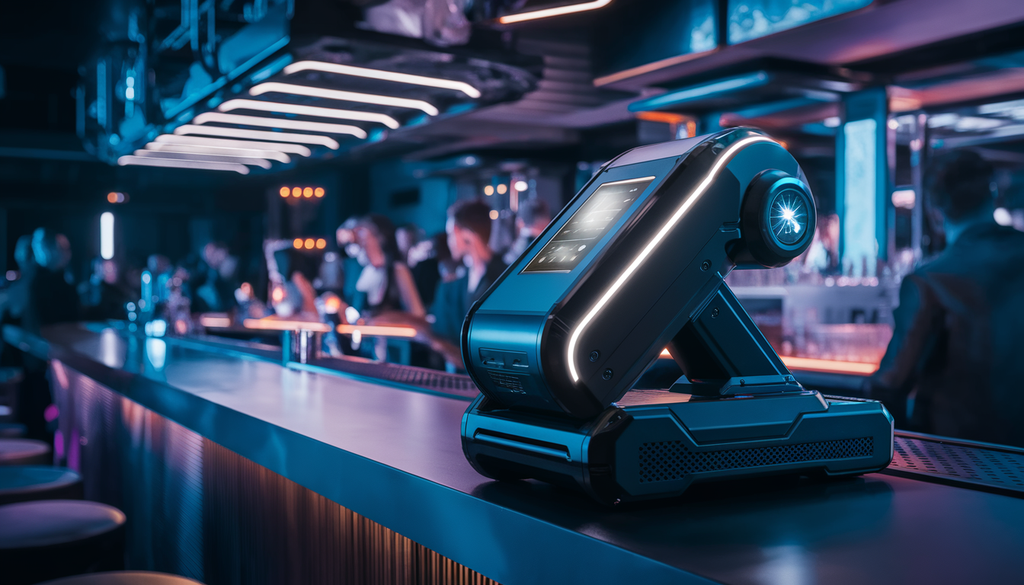In today's digital age, biometric information is important in securing transactions and making sure age checks are accurate. Biometric age verification, which involves using unique physical characteristics such as fingerprints or facial features, provides more security compared to traditional methods like passwords or PINs. This technology is especially important in industries where age verification methods are critical, such as bars, cannabis dispensaries, and other businesses that deal with age-restricted products.
Throughout this article, we will explore the importance of biometric data in enhancing security measures, look into privacy worries, and examine the practical applications of biometrics in various industries. We will also discuss the effects of the Biometric Information Privacy Act and how it affects businesses. Join us as we uncover the fascinating world of biometrics and its role in secure transactions.
Understanding Biometrics
Biometrics refers to the study and use of unique physical or behavioral characteristics used to identify individuals. Common types of biometric authentication include:
- Fingerprints: One of the most widely used biometric methods, fingerprints provide a unique identifier for each individual.
- Facial Recognition: This method analyzes facial features to verify identity, often used in smartphones and security systems.
- Iris Scanning: By capturing the unique patterns in the colored part of the eye, iris scanning offers high accuracy.
- Voice Recognition: Uses vocal characteristics to identify and authenticate users.
The history of biometrics dates back to ancient times, but its modern applications have evolved significantly. According to Britannica's comprehensive overview, biometrics have transitioned from simple identification methods to advanced biometric identification systems that enhance security in various sectors. Today, biometric technology is integral to age verification processes, helping businesses ensure compliance and prevent unauthorized access to restricted products.
Biometric Data Security and Privacy
In today's digital age, securing biometric information is crucial, especially in age verification systems. Biometric data, such as fingerprints and facial recognition, is unique to each individual, making it a powerful tool for verifying identities. However, with great power comes the responsibility to protect this sensitive information from potential breaches.
Ensuring the security of biometric data involves:
- Implementing strong encryption methods to protect data during transmission and storage.
- Regularly updating security protocols to guard against new threats.
- Conducting careful risk checks to identify and mitigate vulnerabilities.
Despite these measures, risks remain. Breaches can occur, leading to unauthorized access to sensitive data. For example, the article Exploring Biometric Authentication: From Basics to Case Studies highlights instances where biometric systems, such as biometric scanners, have been compromised, underscoring the need for constant vigilance.
The Biometric Information Privacy Act (BIPA) plays a significant role in safeguarding biometric data. This legislation requires businesses to obtain consent before collecting biometric information and to have a clear policy on data retention and destruction. Compliance with BIPA not only enhances security but also builds customer trust, showing that businesses prioritize their clients' privacy and security.
Application of Biometrics in Age Verification
Biometric technology is changing age checks across various industries, including bars, cannabis dispensaries, and more. By using biometric authentication, businesses can ensure that only individuals of legal age access age-restricted products and services.
Here's how biometrics enhance age verification:
- Accuracy: Biometric systems provide accurate age verification by matching unique physical characteristics, reducing the risk of human error.
- Efficiency: Integrating biometrics with existing security systems streamlines the verification process, making it faster and more reliable.
- Prevention: By using biometrics, businesses can effectively prevent underage access, protecting themselves from legal problems.
The ease of integration with current security setups makes biometric systems a practical choice for businesses looking to enhance their age verification processes. This technology not only improves compliance but also boosts operational efficiency, allowing businesses to focus on providing excellent customer service.
Emerging Trends and Future of Biometrics
Biometric technology is continuously evolving, offering interesting possibilities for businesses looking to enhance their age verification systems. As we look towards the future, several trends are set to make big changes. According to 10 Biometric Trends to Watch in 2024, these advancements in biometric identification technology are shaping the landscape:
- Enhanced Facial Recognition: With improvements in AI, facial recognition is becoming faster and more accurate, providing a seamless experience for users and businesses alike.
- Multimodal Biometrics: Combining multiple biometric modalities, such as fingerprints and voice recognition, increases security and reduces the chances of fraudulent access.
- Mobile Biometrics: As smartphones become ubiquitous, mobile biometric solutions are gaining traction, offering convenience and accessibility for both users and businesses.
- Privacy-First Technologies: With growing concerns over privacy, new technologies are focusing on securing biometric data, ensuring compliance with regulations like the Biometric Information Privacy Act.
These trends present opportunities for businesses to enhance their security measures while also facing challenges in adopting new technologies. The key is to balance innovation with privacy and security, ensuring that biometric solutions are both effective and compliant.
Summary and Next Steps
In conclusion, biometric information is important in secure transactions and age verification. By using advanced biometric tools, businesses can effectively prevent underage access to restricted products while enhancing security and compliance. As trends continue to evolve, staying informed and adaptable is essential for maintaining a competitive edge.
For businesses seeking to enhance their age verification systems, Minor Decliner offers a range of solutions, including ID Scanners and Access Control Systems. These tools are designed to provide robust security while being easy to integrate into existing systems. Explore Minor Decliner's offerings to ensure your business stays ahead in protecting against underage sales and access.
Consider further exploring the company's products and services to find the best solutions tailored to your specific needs. With the right tools and knowledge, businesses can confidently navigate the future of biometric technology.

